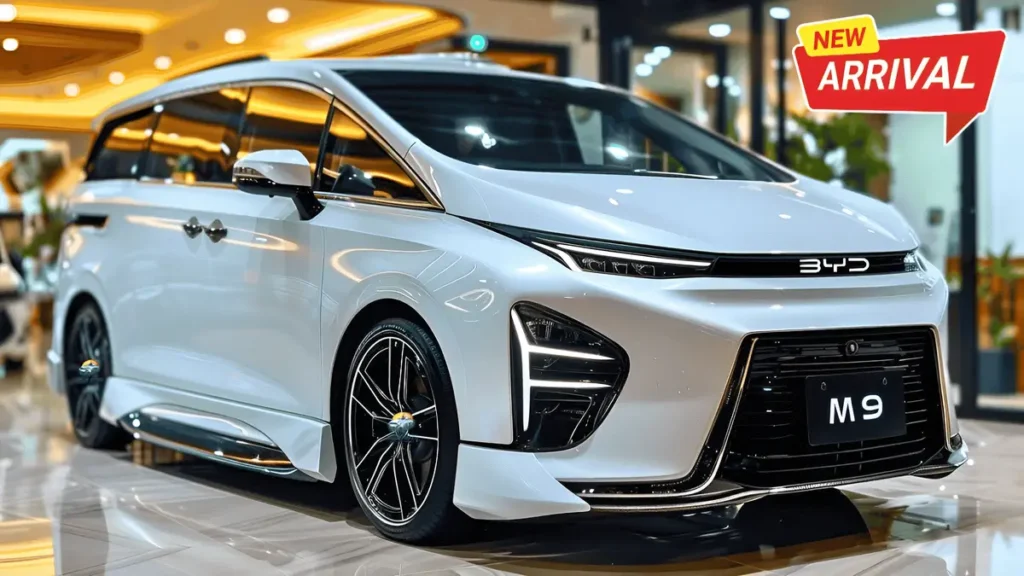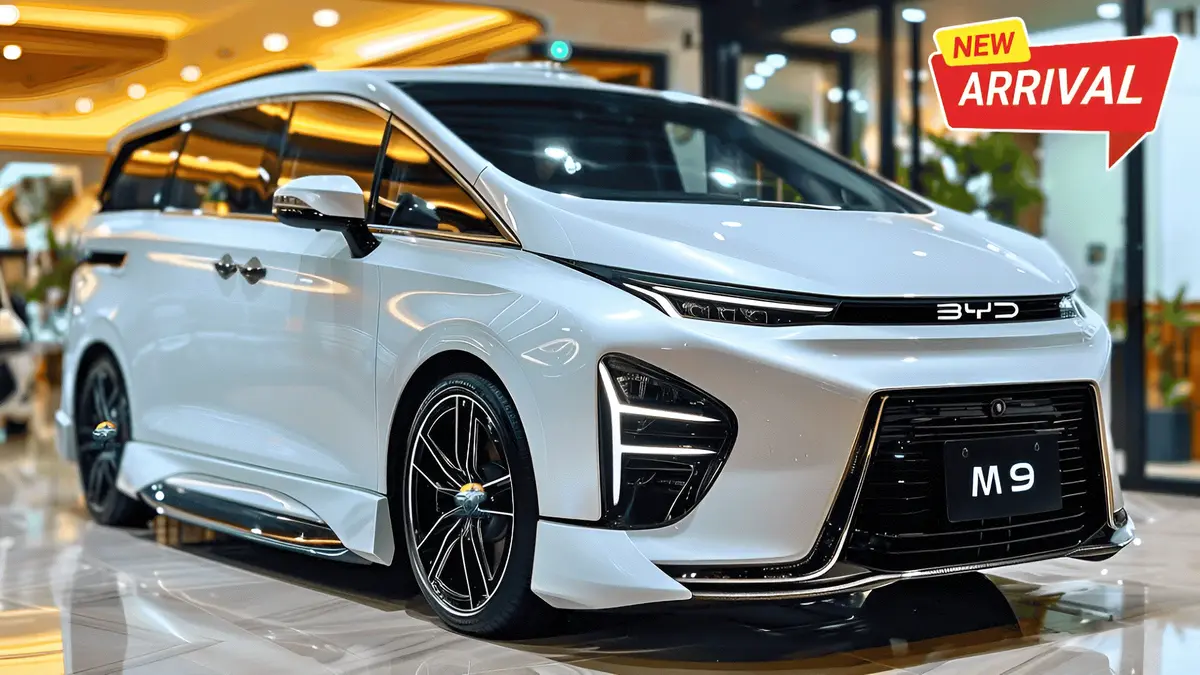In a major development that could shake the Chinese electric vehicle (EV) industry, BYD Auto has announced a recall of over 115,000 electric cars in China due to critical safety issues. As the world’s largest EV manufacturer by sales, this recall marks a significant moment not only for BYD but also for China’s broader push toward electrification in the automotive sector.

What Prompted the BYD Recall?
According to official statements, the recall was initiated after internal quality checks and consumer feedback pointed to a flaw in the electronic stability program (ESP) system of certain models. The ESP is a critical safety component designed to improve a vehicle’s stability by detecting and reducing loss of traction. Malfunctions in this system could increase the risk of skidding or accidents, particularly in high-speed or emergency driving conditions.
The issue affects specific units of the BYD Song Plus DM-i, which is one of the company’s top-selling plug-in hybrid SUVs. It appears that the ESP in some of these vehicles may fail to engage correctly under certain road conditions, potentially compromising driver control.
A Closer Look at the Affected Models
BYD stated that the recall covers vehicles manufactured between March 2021 and September 2022. While no fatalities or injuries have been officially linked to the defect so far, the company has opted to act proactively. This decision is being seen as a preventive move to uphold consumer trust and maintain brand integrity in an increasingly competitive EV market.
Below is a breakdown of the affected models and their production timelines:
| Model Name | Production Timeline | Units Recalled |
|---|---|---|
| Song Plus DM-i | Mar 2021 – Sep 2022 | 115,048 |
This recall applies only to vehicles sold within mainland China, although international buyers and investors are closely monitoring the situation.
How Is BYD Handling the Recall?
BYD has announced that it will offer free repairs to all affected vehicles. The faulty ESP units will be replaced or updated through software and hardware adjustments, depending on the individual case. Customers can contact authorized BYD service centers to schedule appointments for the required fixes.
This recall will be carried out in phases to avoid overwhelming service stations and to ensure that each case is handled with proper attention. The company is also increasing staffing at its repair facilities and launching an outreach campaign to notify all affected owners.
Impact on China’s EV Market
China has become the world’s largest EV market, and BYD is one of the key players leading that growth. A recall of this magnitude inevitably raises concerns, especially when the company has been hailed as a national EV champion.
Some analysts believe the recall might temporarily dent consumer confidence in local EV brands, especially in the premium plug-in hybrid space where the Song Plus DM-i has dominated. However, others argue that BYD’s swift response could actually enhance its reputation for quality assurance.
Interestingly, the recall also comes at a time when other EV manufacturers are facing scrutiny for software and hardware reliability. As EV technology becomes more advanced, even minor glitches in critical systems like ESP, battery management, or autonomous features can trigger major recalls.
Consumer Reactions and Social Media Buzz
The news of the recall has generated significant buzz across Chinese social media platforms such as Weibo and Douyin. While some customers have expressed frustration over potential safety risks, many are applauding BYD’s transparency and willingness to take quick action. Owners of the affected models are also reporting that the service centers have been responsive and that wait times are being managed effectively.
Still, this situation raises broader questions about the quality control processes in China’s booming EV sector. Can manufacturers maintain rapid production growth while ensuring the reliability of advanced vehicle systems?
What This Means for International Markets
While the recall is limited to China, the implications may stretch beyond its borders. BYD has aggressively expanded into international markets, including Europe, Southeast Asia, and Latin America. With plans to enter the U.S. passenger vehicle market in the near future, the company will likely face increased regulatory scrutiny abroad following this incident.
Regulators in Europe and other regions often keep a close watch on recalls in large manufacturing hubs like China. This event could lead to tighter inspection protocols for BYD exports and possibly delays in upcoming vehicle launches in other countries.
Quality Control in the Age of EVs
This recall serves as a reminder of how critical software-driven systems have become in modern vehicles. Unlike traditional cars, EVs are heavily reliant on interconnected software and electronics to manage everything from traction control to regenerative braking and battery safety.
Any failure in these systems doesn’t just result in mechanical inconvenience it could lead to dangerous driving scenarios. For this reason, automakers are under pressure to conduct more rigorous testing and ensure that their software is as reliable as their hardware.
The Road Ahead for BYD
Despite the recall, BYD’s long-term outlook remains strong. The company has consistently posted strong sales figures, and its commitment to innovation including blade battery technology and hybrid engines keeps it ahead of many global competitors.
This event may actually serve as a learning opportunity, both for BYD and the entire Chinese auto industry. By taking responsibility early and addressing the issue thoroughly, BYD may be able to turn a potential setback into a testament to its maturity as a global brand.
Frequently Asked Questions (FAQ)
Q1: Which BYD models are affected by the recall?
The recall specifically affects the BYD Song Plus DM-i plug-in hybrid SUV models produced between March 2021 and September 2022.
Q2: What is the safety issue behind the recall?
The issue lies in the electronic stability program (ESP), which may malfunction and fail to stabilize the vehicle under certain conditions.
Q3: How will BYD fix the problem?
BYD will offer free repairs, which may include software updates or hardware replacements, depending on the issue in each vehicle.
Q4: Is this recall limited to China?
Yes, the recall currently applies only to vehicles sold in mainland China, but international markets are watching closely.
Q5: Will this impact BYD’s global expansion plans?
While it may lead to closer scrutiny in foreign markets, BYD’s proactive approach could actually strengthen its global reputation over time.
